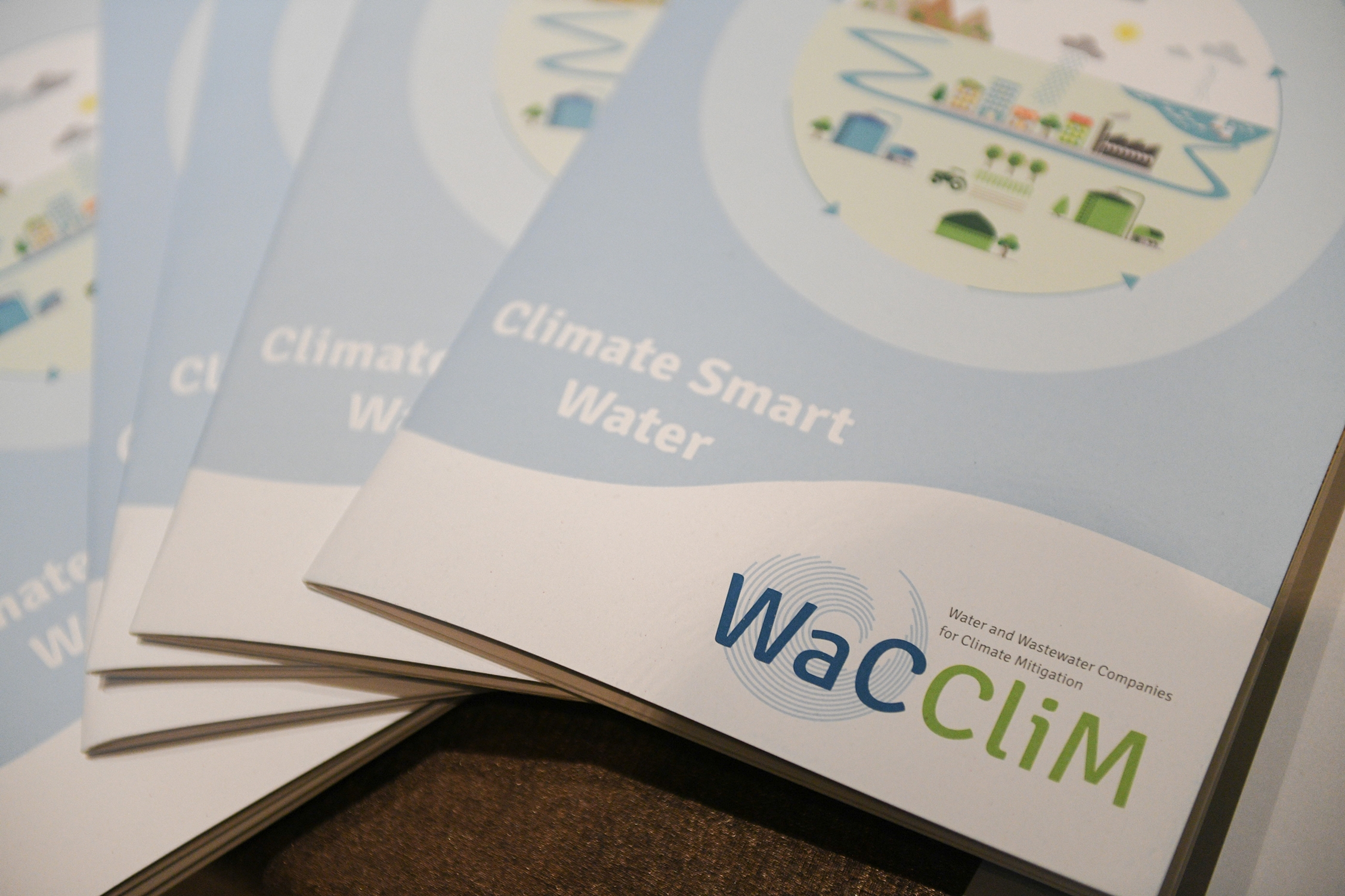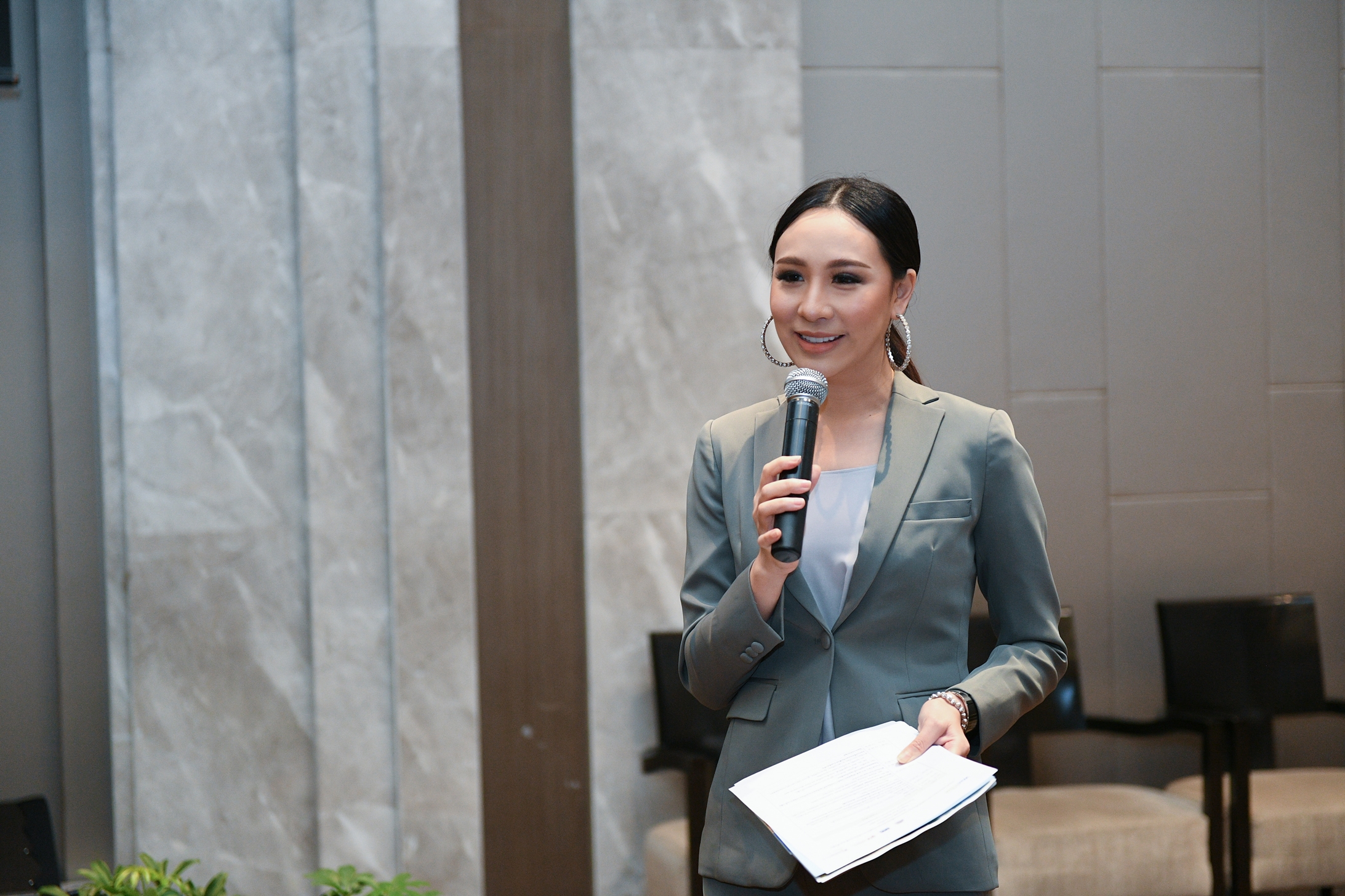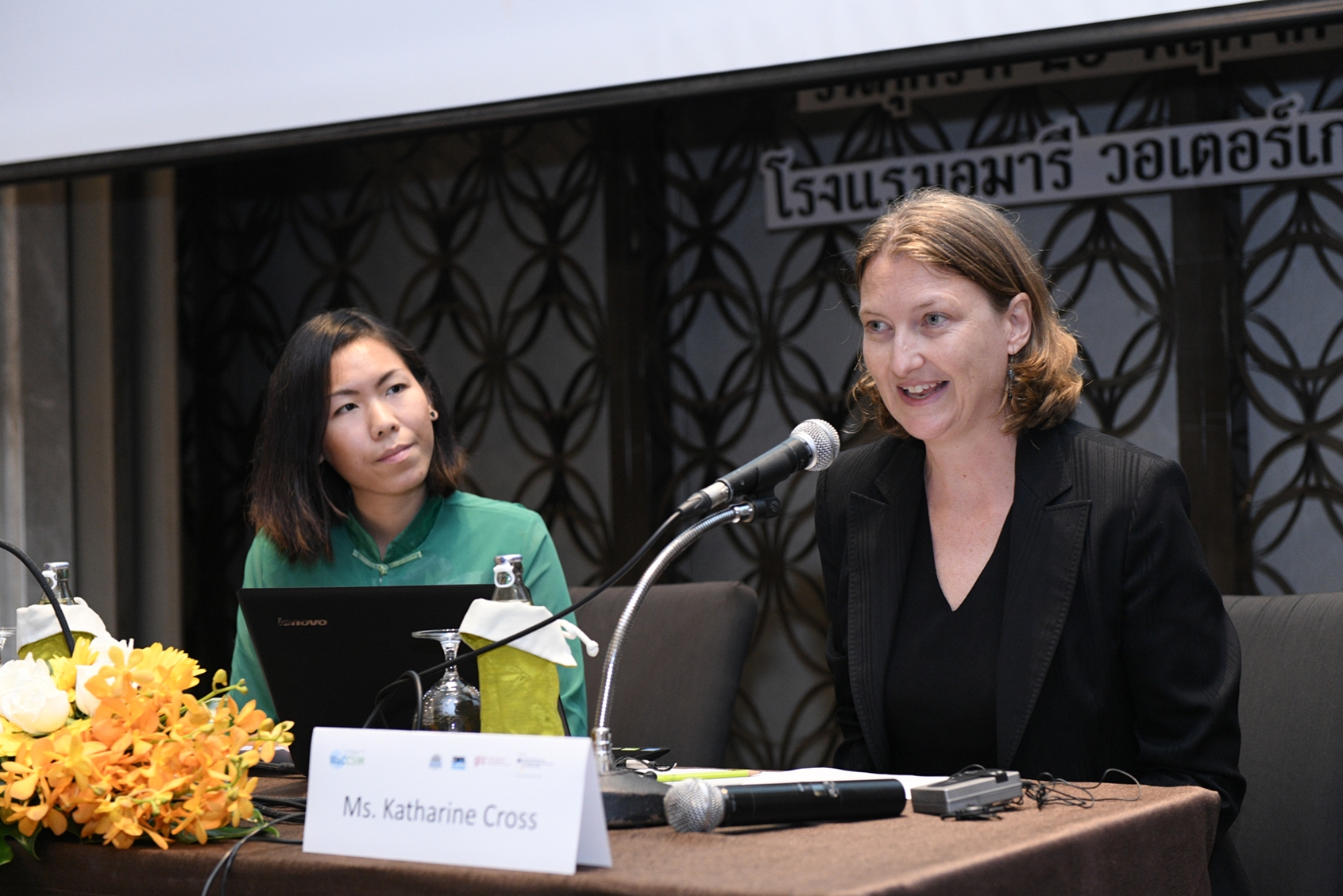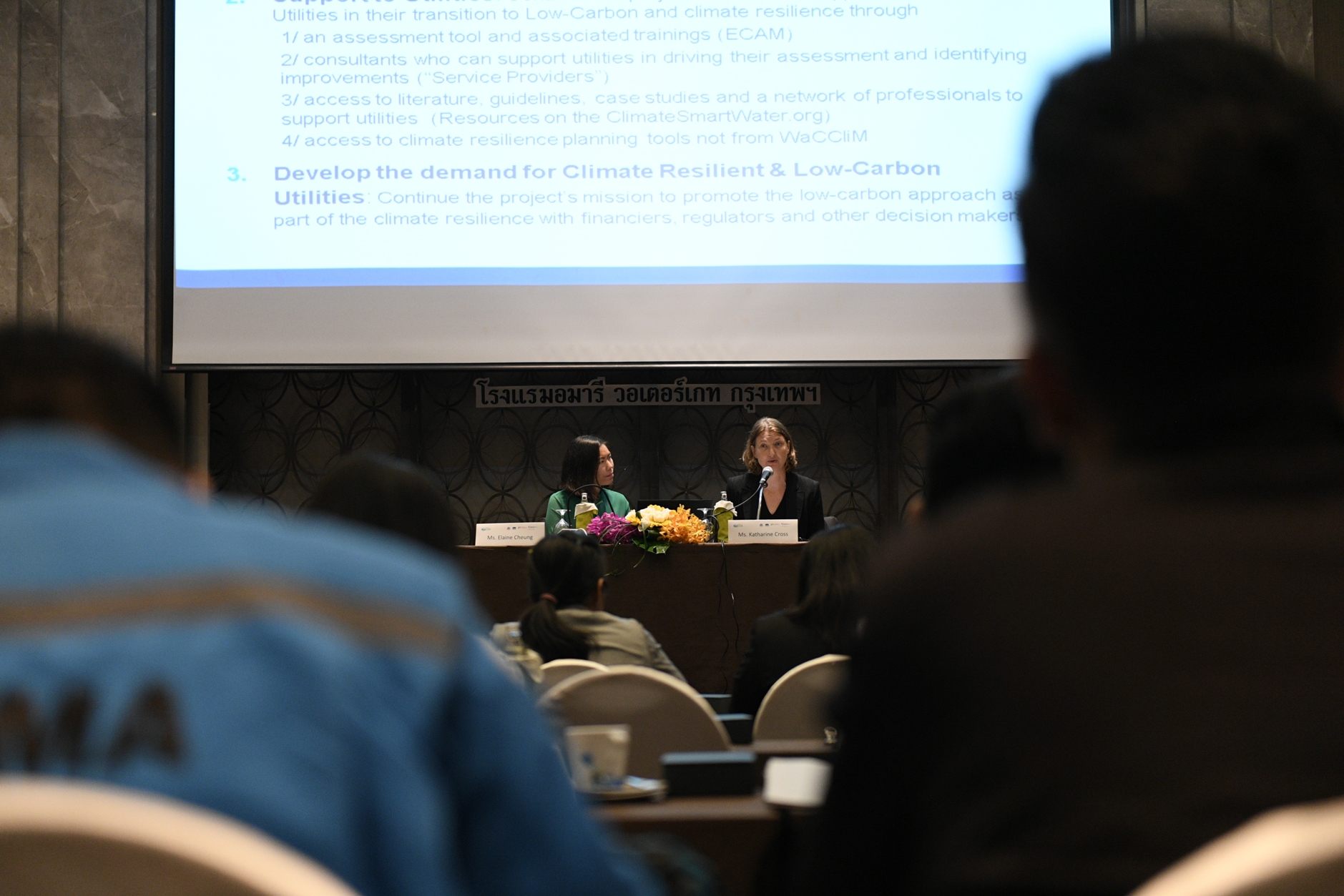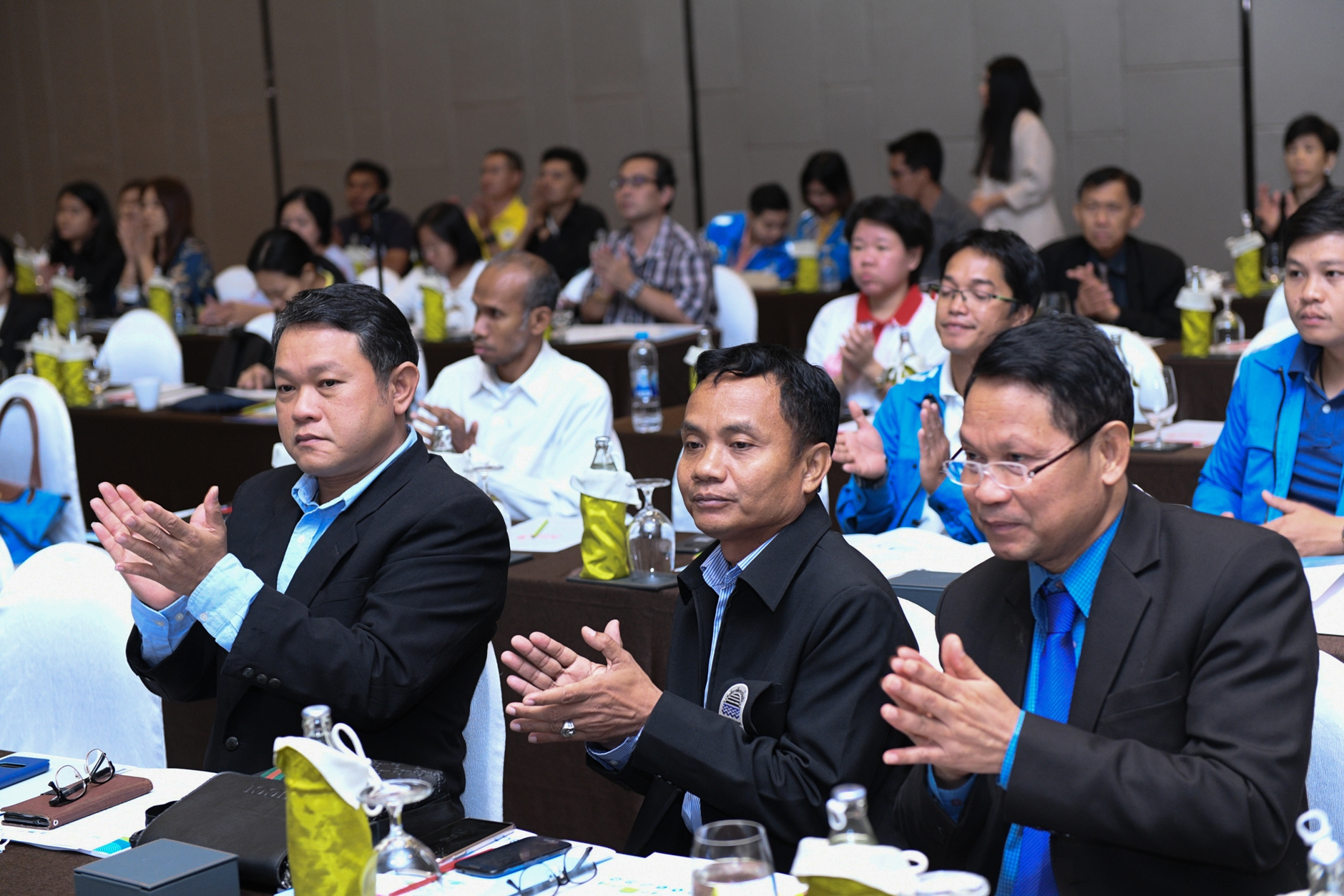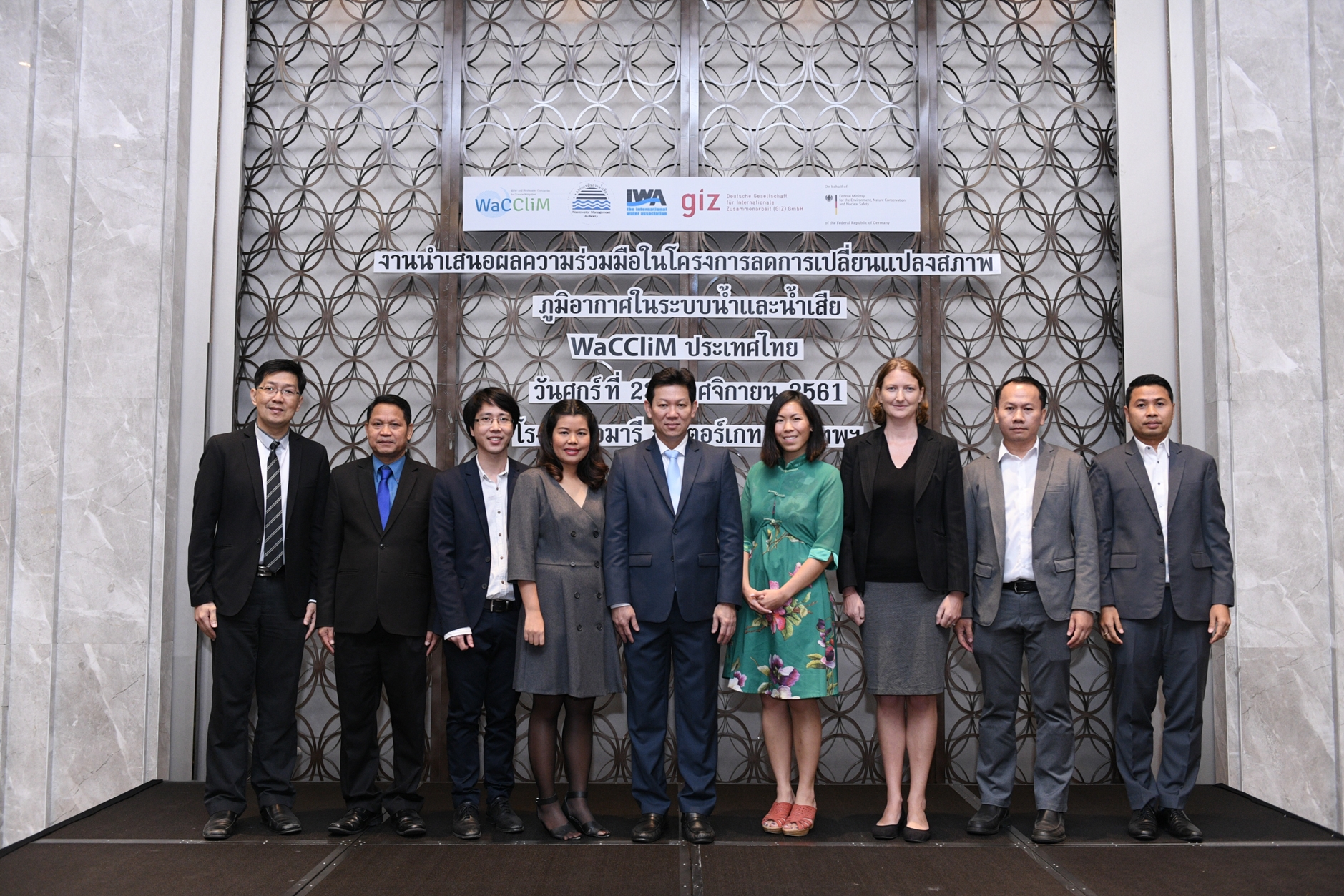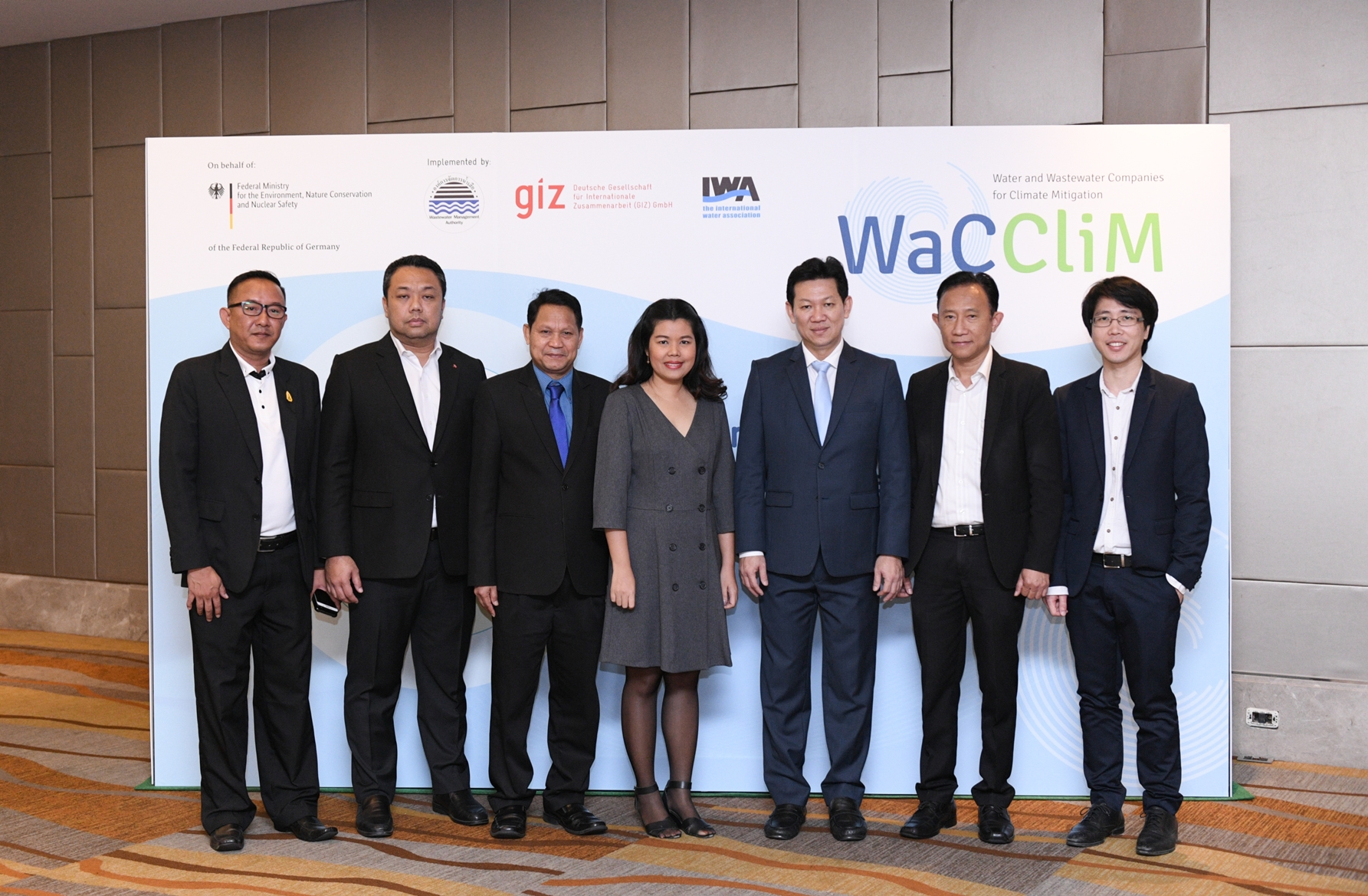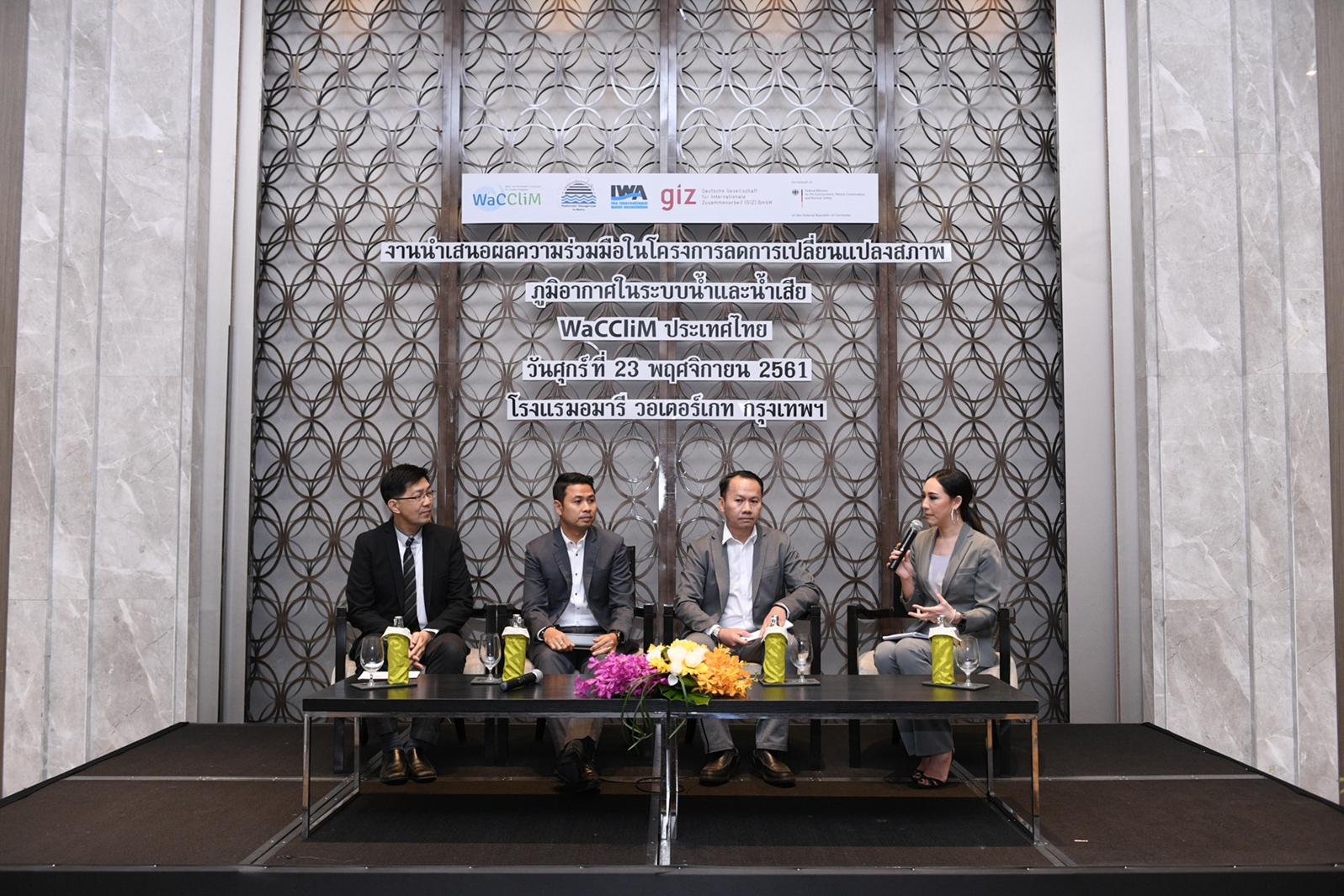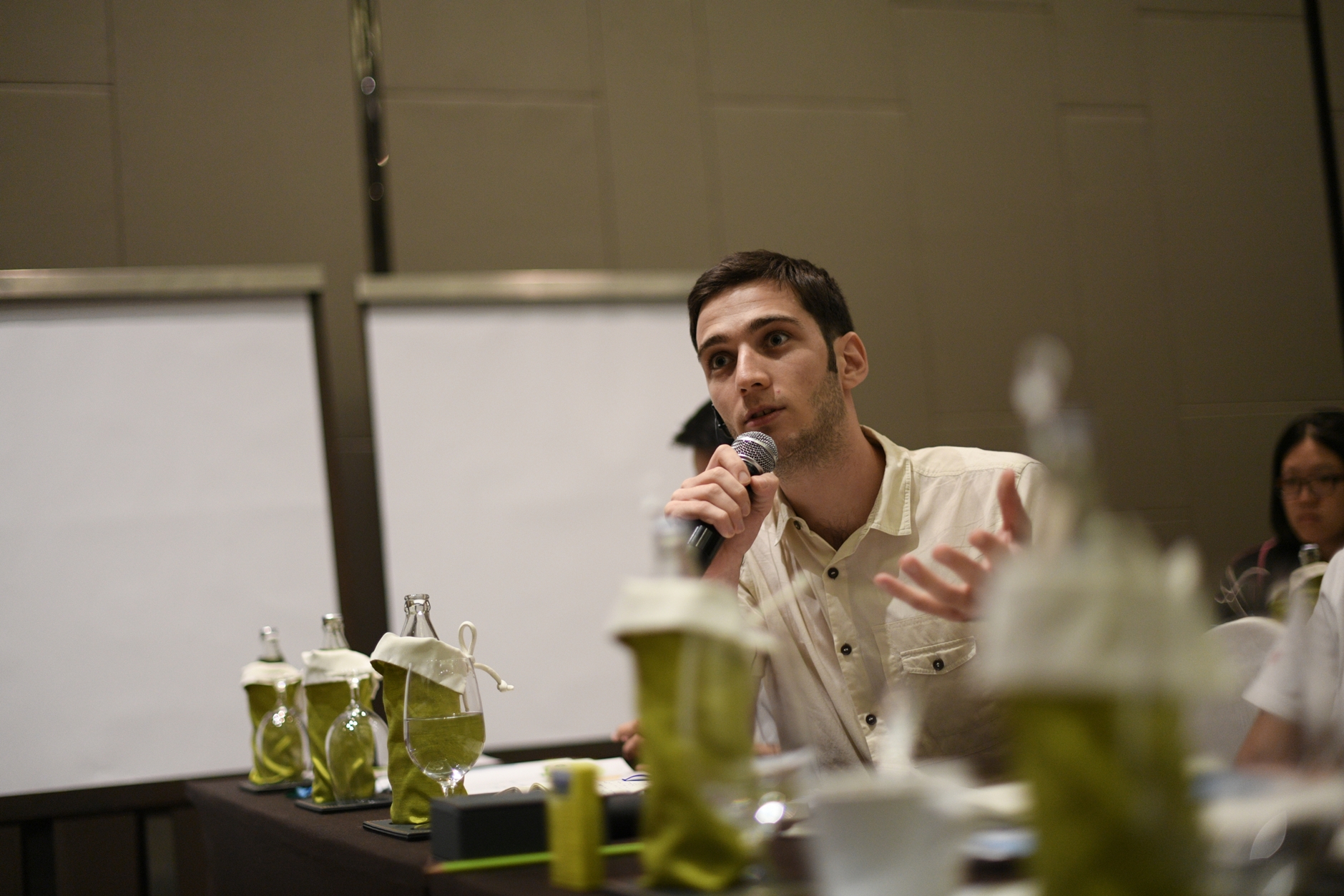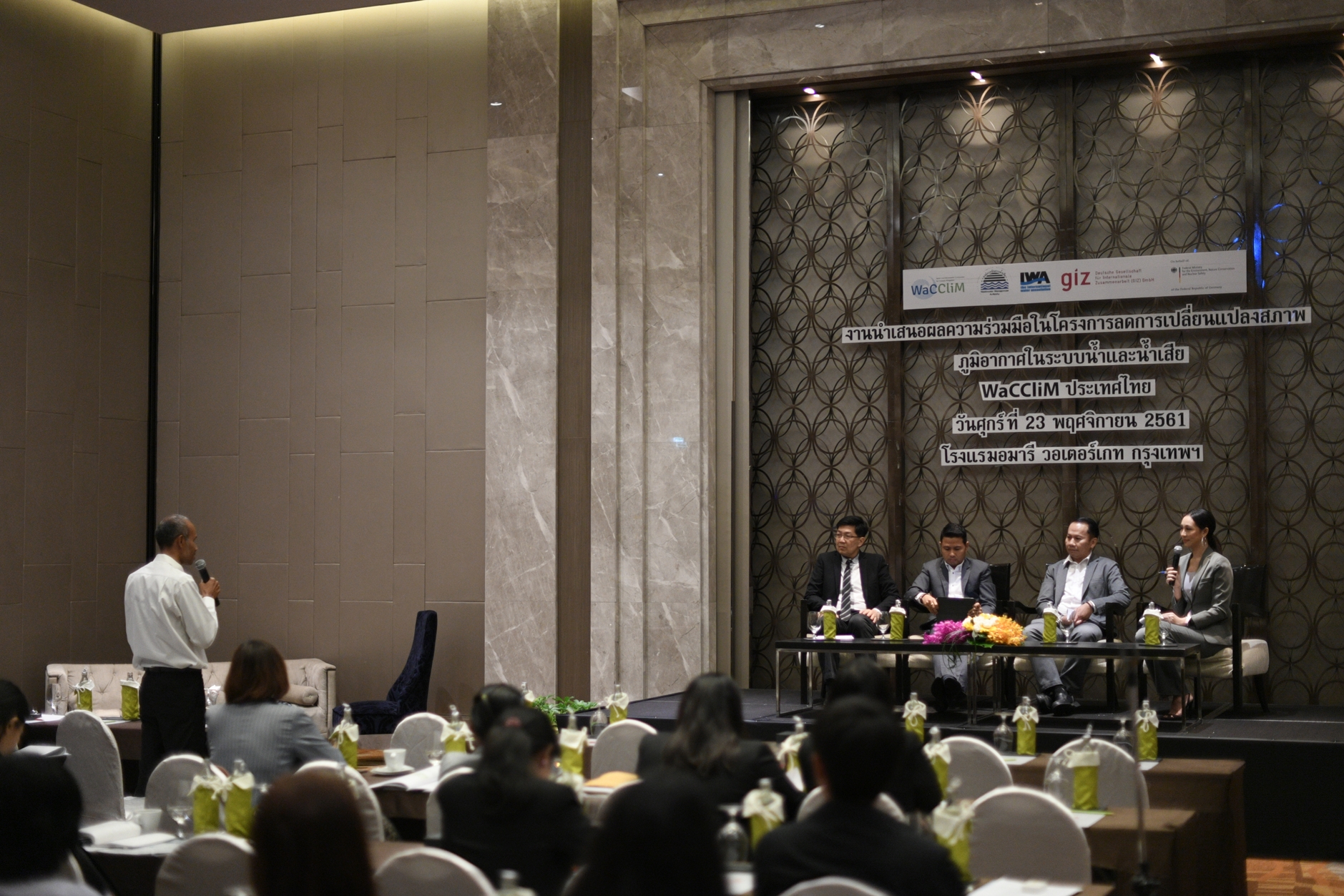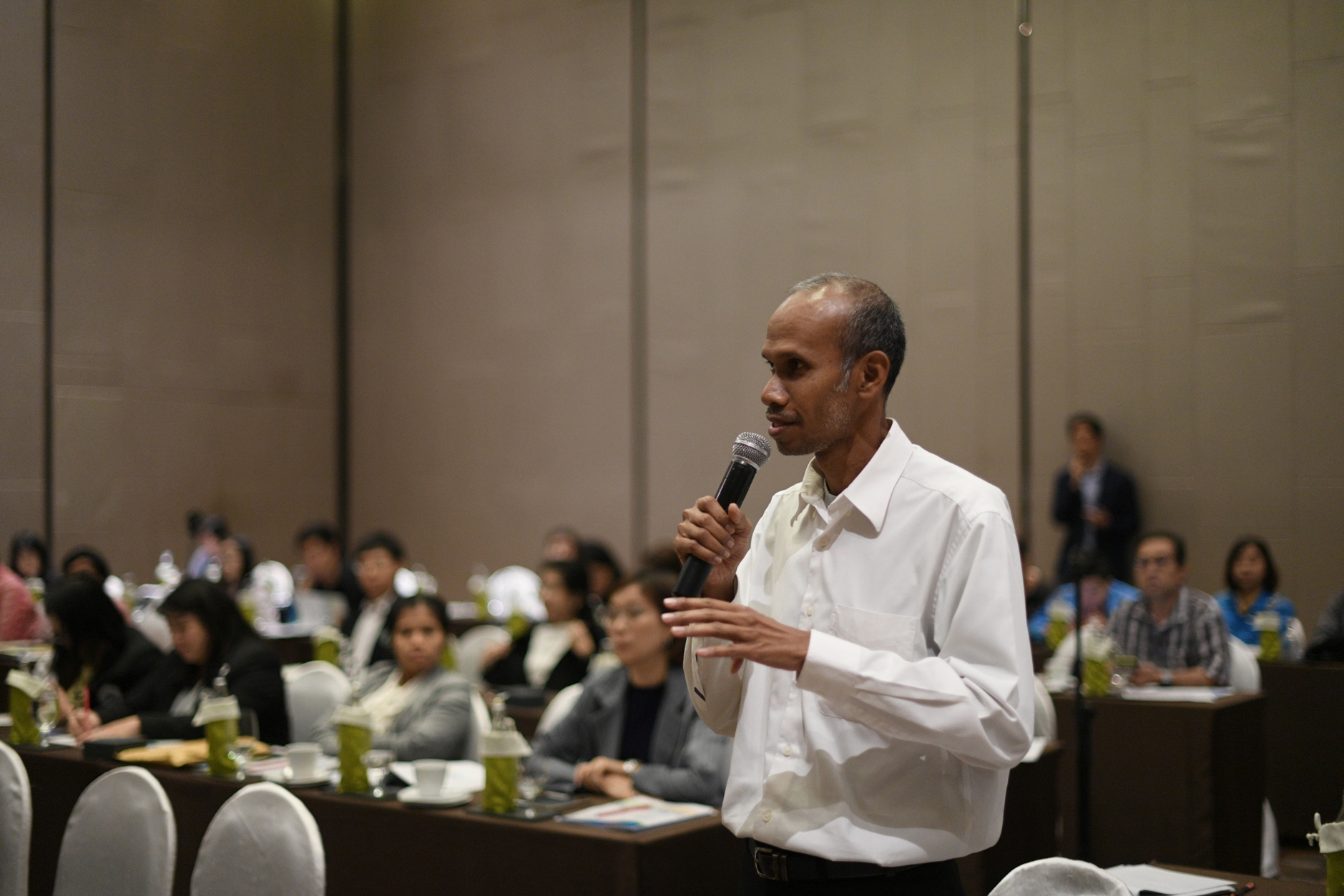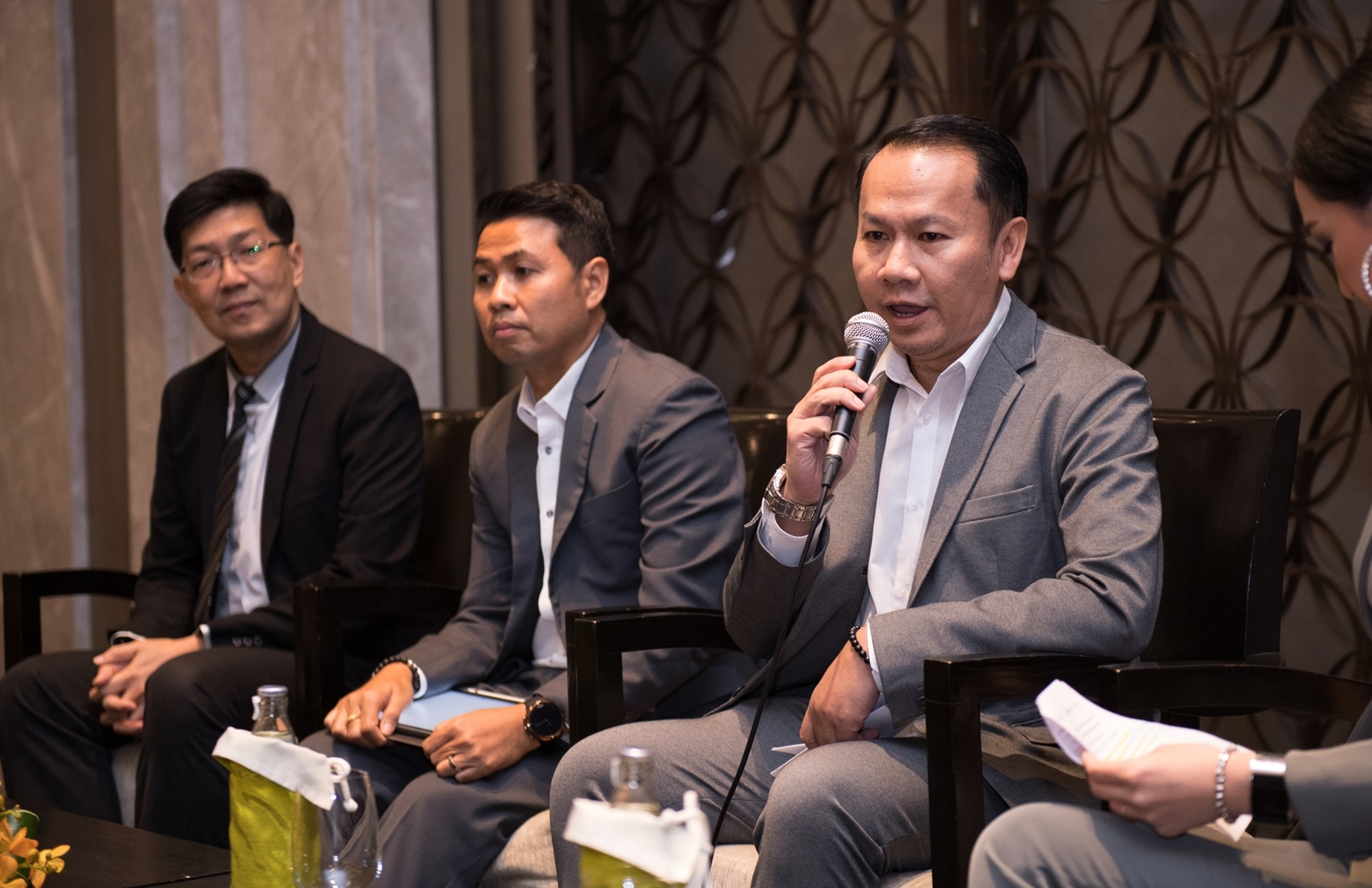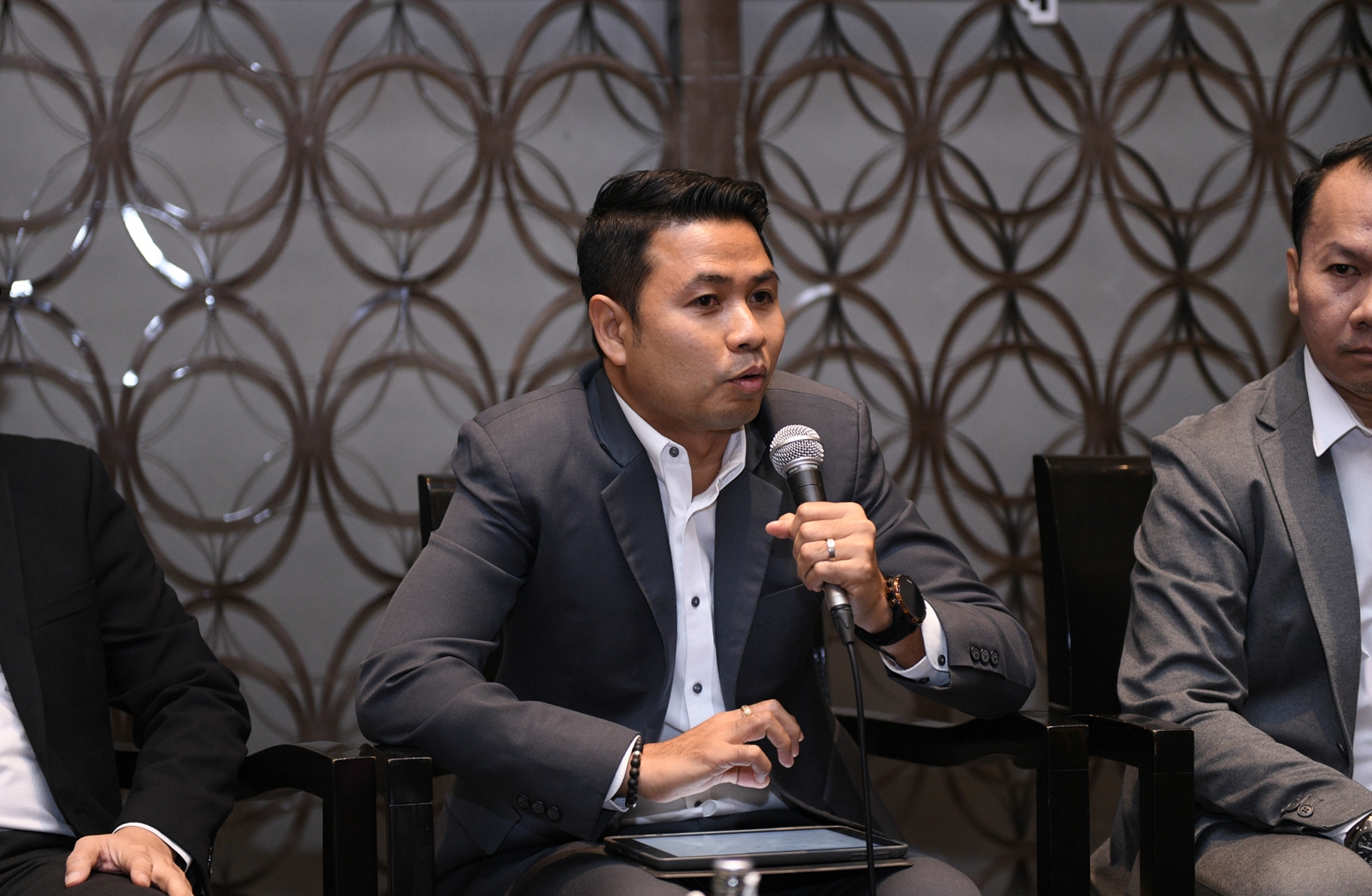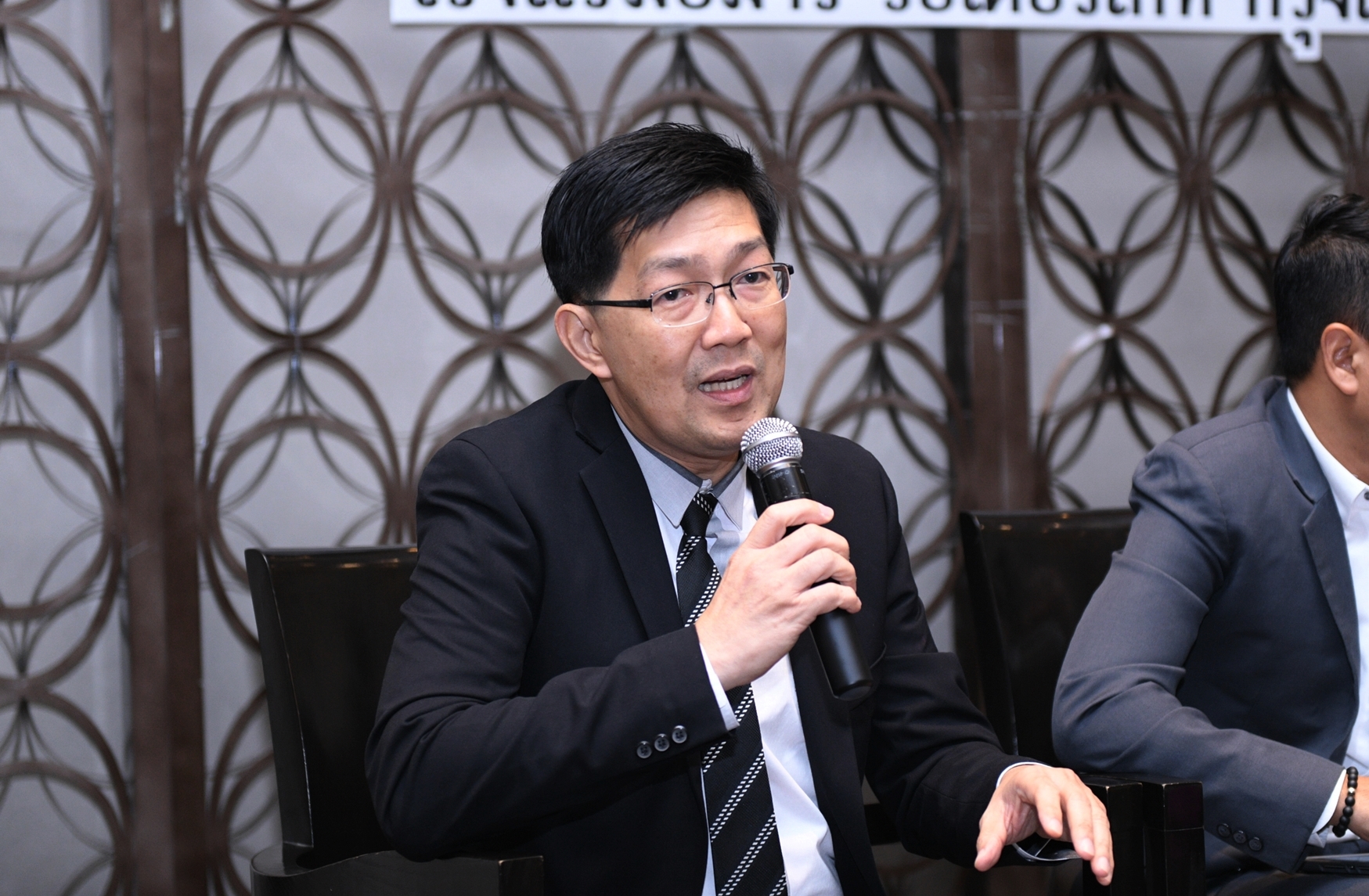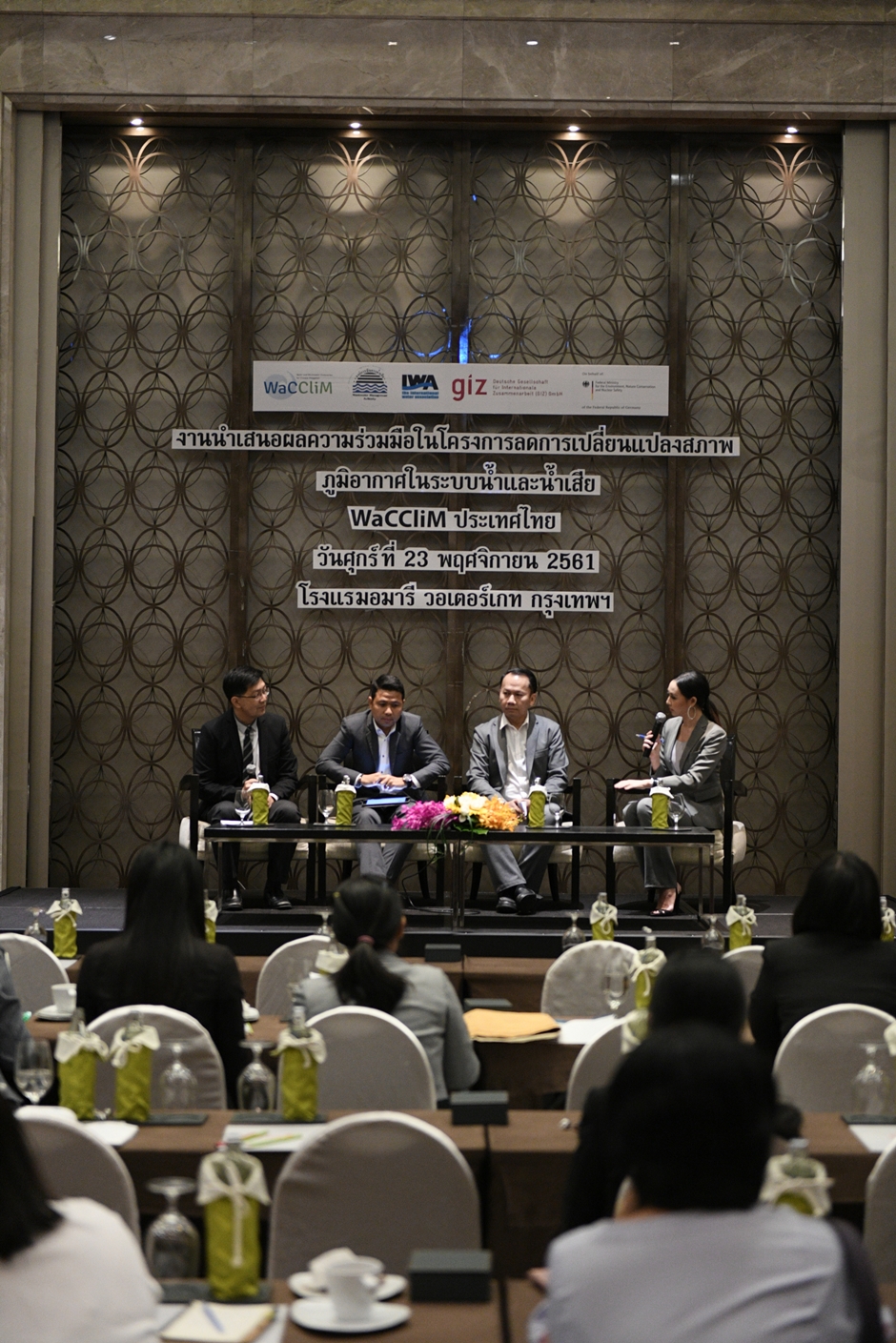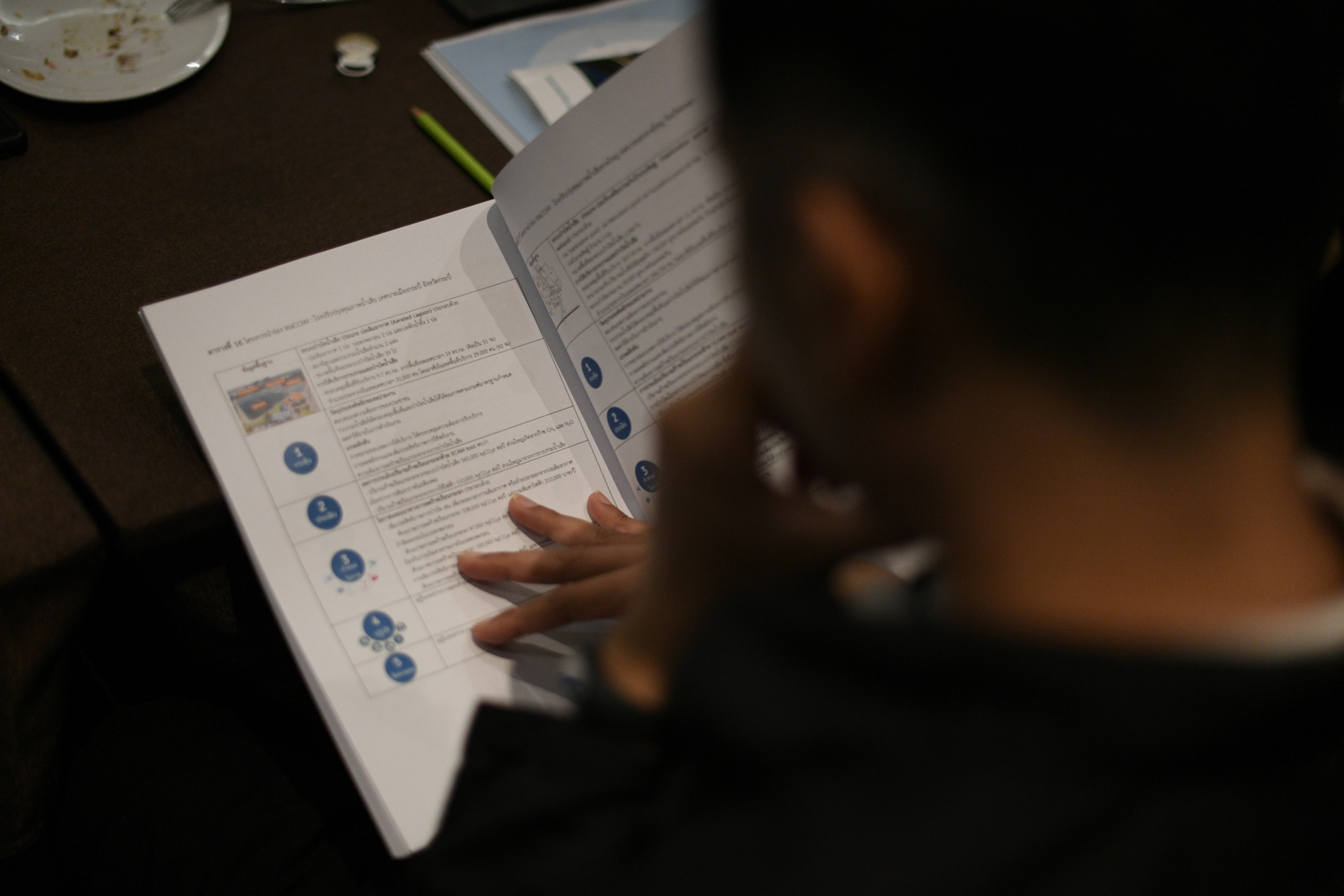The Wastewater Management Authority (WMA) and the Deutsche Gesellschaft für Internationale Zusammenarbeit (GIZ) GmbH organised a closing ceremony for the Water and Wastewater Companies for Climate Mitigation (WaCCliM) project in Thailand. WaCCliM Thailand has supported the introduction of greenhouse gas (GHG) mitigation measures in the wastewater system of 4 pilot areas.
With the world focusing its efforts on limiting global temperature rise to 1.5 ºC, every sector has started planning how it can achieve the reduction target. According to the Thailand Greenhouse Gas Management Organization (TGO), 47.5 percent of GHG emissions from the waste sector come from wastewater management, making up 2 percent of national emissions. To reduce national emissions, Thailand has issued a Nationally Determined Contribution (NDC) roadmap (2021 – 2030). The reduction target for wastewater management is 700,000 tons carbon dioxide (CO2) equivalent by 2030.
Water and Wastewater Companies for Climate Mitigation or WaCCliM Project is funded through the International Climate Initiative (IKI) of the German Federal Ministry for the Environment, Nature Conservation and Nuclear Safety (BMU). The project was initiated in 2014 with the global objective to reduce the carbon footprint of water and wastewater utilities by introducing carbon-reducing measures while maintaining or improving performance, and supporting the development of a new strategy and framework for climate mitigation in the water and wastewater sector. The experiences gained from the project approach in each pilot area will be integrated into a national guideline for water and wastewater utilities to move towards carbon neutrality. In Thailand, the WaCCliM project has worked in 4 pilot areas, namely Chiang Mai, Songkhla, Krabi and Chonburi provinces, advising on mitigation measures to improve performance and reduce carbon emissions. In the meantime, WaCCliM Thailand has also supported the Wastewater Management Authority (WMA) in developing a new framework for domestic wastewater utilities in relation to climate mitigation. The results from project implementation will serve as guidelines for other wastewater utilities in Thailand.
One of the results from this cooperation is the ECAM (Energy performance and Carbon emissions Assessment and Monitoring) Tool, the first assessment tool for water and wastewater utilities to estimate GHG emissions and which can be used for Monitoring, Reporting and Verification (MRV). From the initial estimation in the Thai pilot areas, around 7,500 tons CO2 equivalent can be avoided each year, a 28 percent reduction compared to business-as-usual (BAU).
Mr. Chira Wongburana, Acting Director General of Wastewater Management Authority (WMA) noted that climate change is one of the areas to which WMA is giving priority. “We are therefore working closely with municipalities to provide high-quality wastewater treatment services, while increasing awareness of domestic wastewater management and the impact on water resources from improper management. Since climate change can be affected from wastewater management; electricity consumption and treatment processes, there is an opportunity from wastewater sector to support climate mitigation. We also plan to use ECAM Tool for planning a strategy to achieve climate mitigation in domestic wastewater sector of Thailand in the future. The ECAM Tool we received from the WaCCliM project is applied to the results and used within the Thailand Wastewater Monitoring and Reporting Center. This reports the GHG emissions results from real-time electricity consumption and these results will be reported and can be viewed through our web page. This tool is open and free to access via wacclim.org. The website also provides methodology guidelines and training documents for interested organisations who would like to assess GHG emissions from the water sector. With the project now ending, WMA is ready to go beyond the project scope and use the ECAM Tool on other domestic wastewater utilities for which WMA has responsibility.”
Ms. Chutima Jongpakdee, WaCCliM project manager, GIZ Thailand said “During the 4 years of cooperation, WaCCliM Thailand has supported WMA by proposing mitigation measures to improve the performance of the domestic wastewater system and develop a strategy which will serve as a framework for climate mitigation in the domestic wastewater sector. The most important component in achieving the reduction target sustainably is quality of data. GIZ together with the International Water Association (IWA) have thus focused on capacity building of WMA staff over the 4 years, providing them with knowledge on how GHG emissions in wastewater systems are produced both directly and indirectly, as well as training them in using the ECAM Tool so they are able to assess GHG emissions by themselves. This approach raised awareness among WMA staff involved in data collection and operating the treatment system and helped them understand why collecting data is essential to assess the level of emissions produced from their system. This improved quality of data is important for developing a national framework on climate mitigation in the domestic wastewater sector. The final developed framework will be feasible and achievable. The sector will then support local authorities in moving towards a low carbon society.”


